The 20th annual Seoul Queer Culture Festival, which ran for two weeks at the end of May, encompassed a pride parade, film festival, and lectures. Under the slogan “The 20th Fight for Rights,” the pride parade in particular saw the South Korean LGBTQ community out in full force. “Tens of thousands of people paraded through central Seoul in Korea’s biggest pride parade ever,” reported The Korea Herald, with almost 80,000 lesbian, gay, bisexual and transgender people and their supporters taking to the streets to call for equal rights for sexual minorities, in “a country where sexual minorities still live on the fringes of society.”
The first pride parade in Seoul happened in 2000 and attracted around 50 people. This year’s past demonstration was a huge step for representation and awareness of the Korean LGBTQ community, despite the thousands of anti-LGBTQ campaigners that were present proclaiming that “homosexuality is sin” or “marriage is a union between a man and woman.”
i-D talked to some of the joyful and defiant participants in the historic pride parade, to find out why it’s so important to show pride in South Korea.
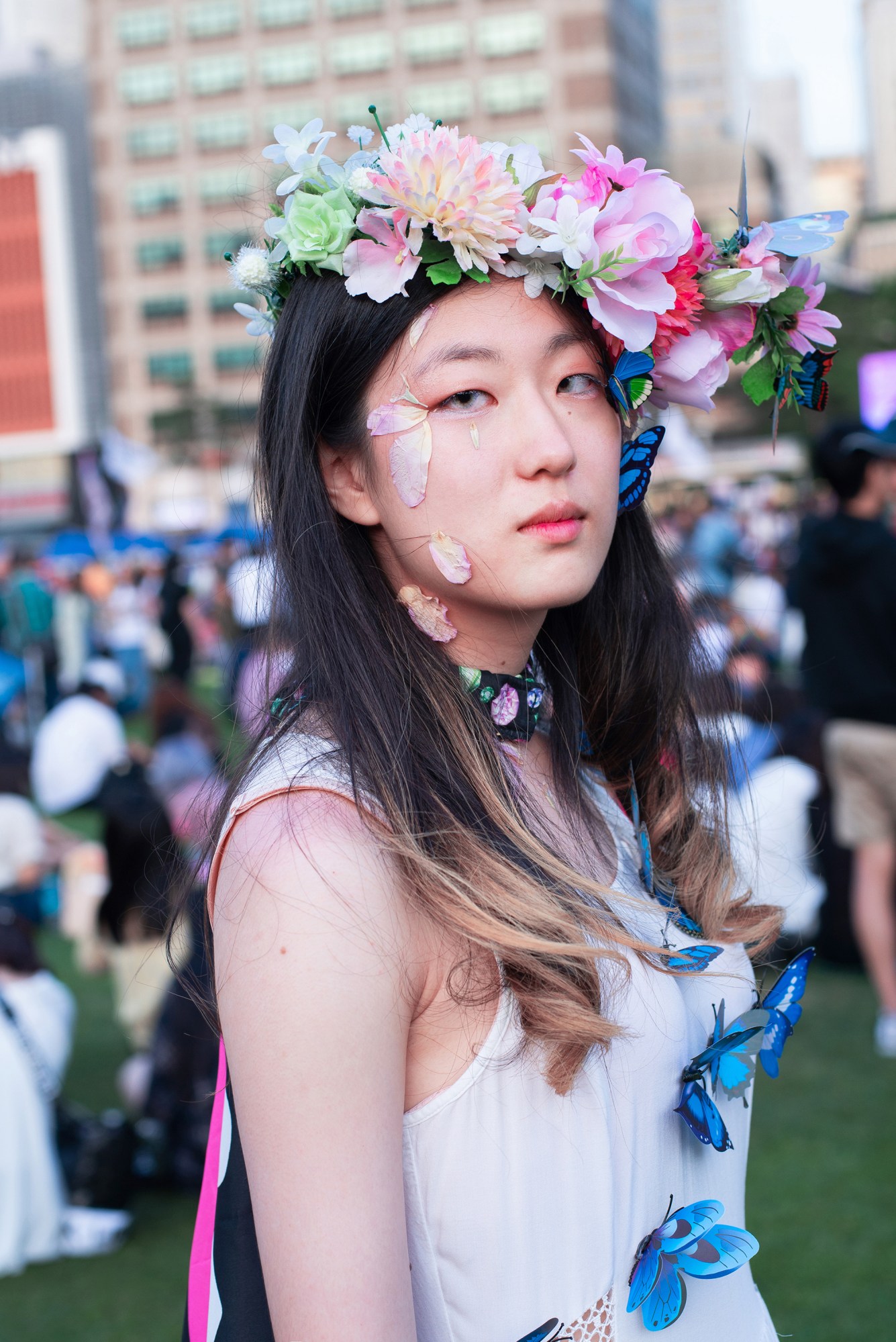
Sanghwa, 20
What do you do?
I am a college student, currently taking a leave of absence from school. Until earlier this year, I was working as an LGBTQ activist in a university student organization. I worked as a committee member of the “Dancing Queers,” Solidarity for Queer Liberation at Sogang University as soon as I became an adult and got into the university. As a committee member, I got to know about the queer community and was the President of the very first Gender Minority/LGBTQ student council organization in South Korea at Sogang University for a year.
I was part of the resolution unit of the school’s Central Committee advocating the political will of LGBTQ students in response to any incident that occurred on campus. To be more specific, we provided a safe community and shelter to the gender minorities on campus and negotiated with the school in response to any sexual harassment incidents that occurred on campus on behalf of the LGBTQ students. We also held seminars and school events to provide information to the school and other students (non-gender minority) on the presence of lesbian, gay, bisexual, transgender, and queer or questioning (LGBTQ) students. I have completed a brief period of two years serving as an LGBTQ activist and ended my term in April this year. I am currently at a resting point to reflect on how to move forward with my life and am planning to take care of my health and exhausted mental state. I think it was a great decision for me to take a break from school now that my activities have ended.
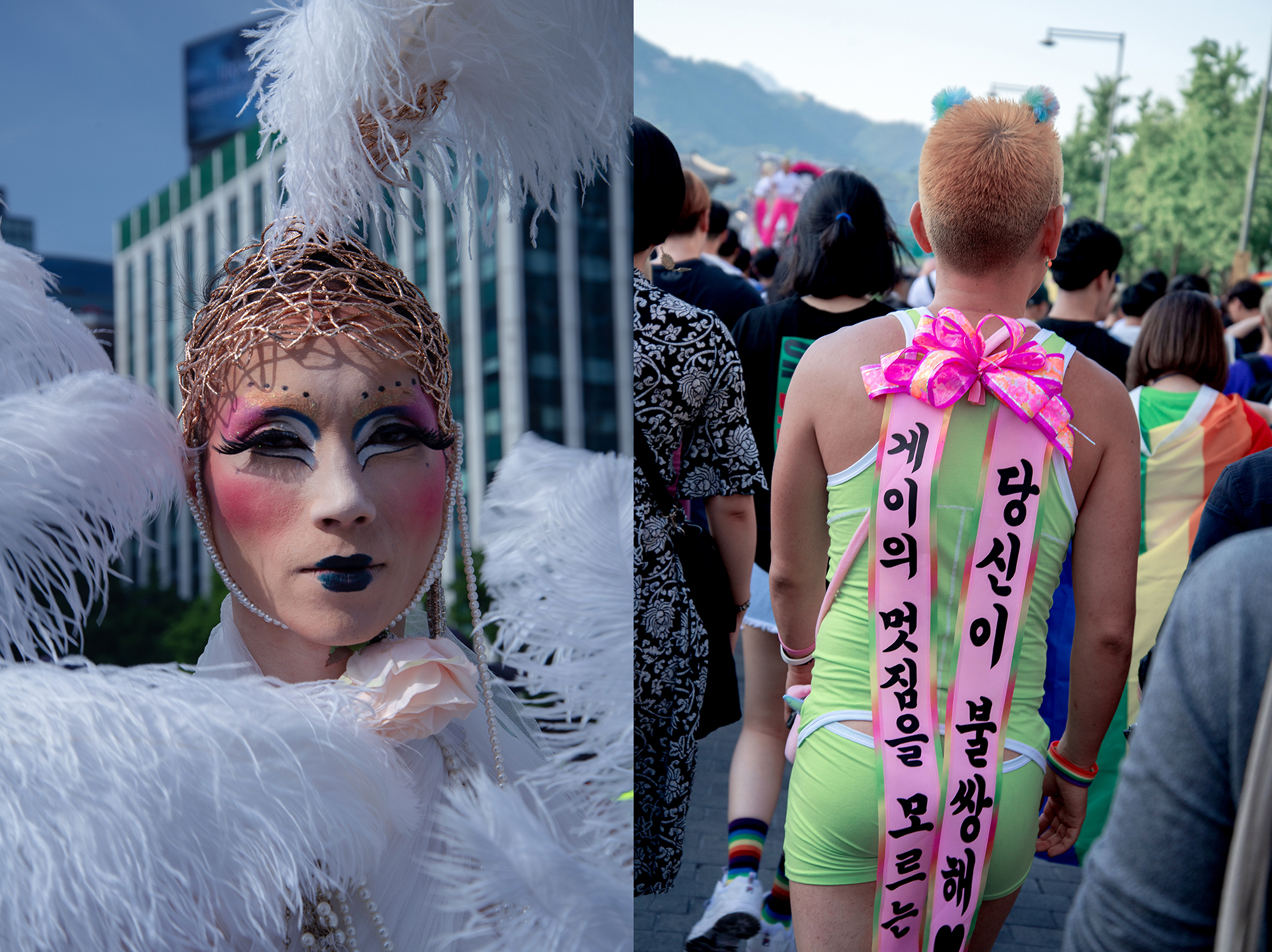
What brought you to the Queer Culture Festival?
To show myself. I want to show myself to the world. I planned out and came up with a concept to dress up in for this Queer parade. I usually do not dress up and it felt exciting when it caught people’s eyes. When a friend saw me she said, “I was surprised when I saw her today. She usually wears glasses and does not put on any makeup. It would have to take something like the Queer Festival to get her dolled up.” I think what I want is to outwardly express myself in ways that I normally don’t do on a regular basis. Perhaps even overly express myself in line with the purpose of this Queer Parade festival. Normally, queer people hide their sexual identity and live in the crowd as if no one knows. However, during the Queer Parade, all of the people who identify as Queer who were living in hiding are gathered in the plaza and waving the rainbow to raise their voices and speak out, “I am here. Look at us. We are LGBTQ.”
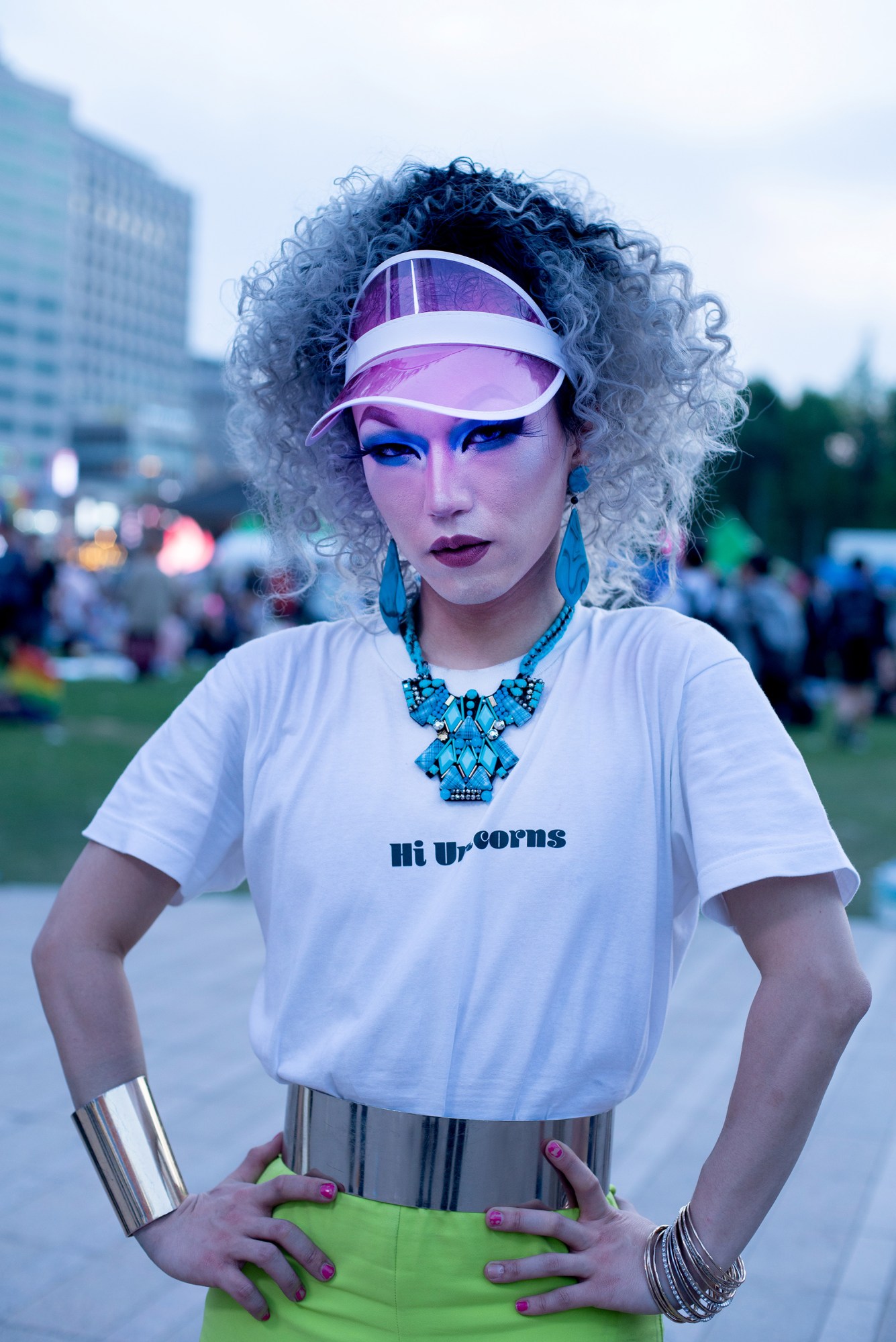
Bumbie, 30
What do you do? I am the CEO of NEONMILK. NEONMILK is a Seoul based LGBTQ+ culture creative collective label company that has put on various drag queen performances in South Korea, by internationally known drag queens such as Kim Chi, Naomi Smalls, Violet Chachki, etc. In addition to the drag show, we also create magazines, YouTube shows, exhibitions, and many other channels to spread LGBTQ + related culture around.
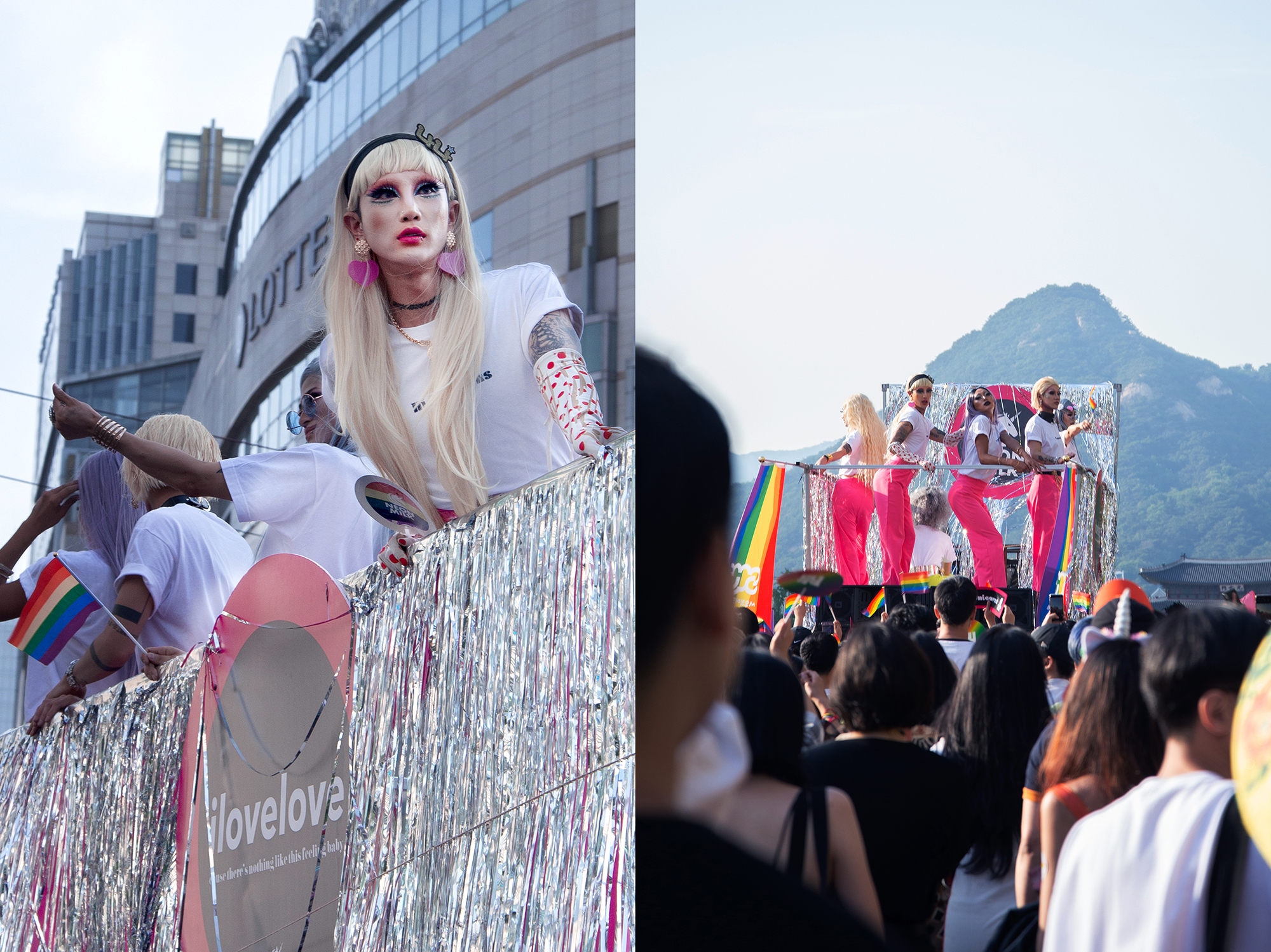
What brought you out to the Queer Parade?
Due to the nature of drag and how it’s mainly geared towards nightlife, I’ve always found it disappointing that teenagers and underage audiences were never able to experience the shows. I wanted to expand and meet a wider audience in person through the Seoul Queer Culture Festival.
Why is the Queer Festival important to you?
I think that the Drag culture, “Do what you want,” mentality plays an important role in Korean society’s pressure for uniformity in the education system. By participating in various LGBTQ events, I hope this will give others the motivation to do what they really want in life.
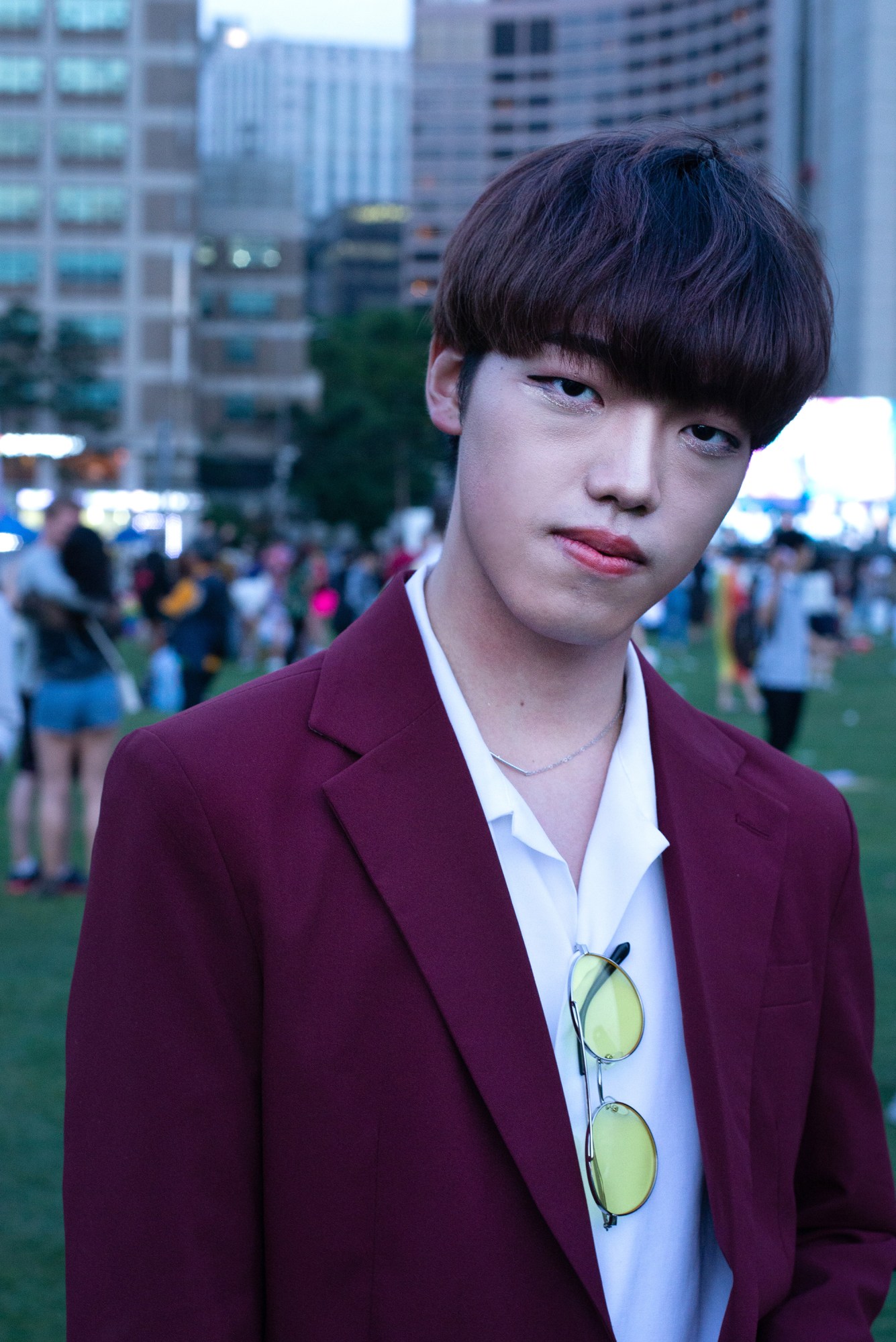
Kim Doh-kyum, 20, Choreographer
What brought you out to the Queer Parade?
I am participating in the Queer Parade to support my many Queer friends I have met in my life, and to join the general public who are also happily participating in the Queer Festival. It’s been hard finding any movement that respects or attempts to understand queerness in South Korean society. Usually ignored and repressed from prejudice and discrimination, I dressed up and came out today to stop and prevent the queer community from hiding their identity.
Why is the Queer Parade important to you?
It’s a very meaningful event for me because it recognizes the diversity of the LGBTQ people and friends who have suffered from the pressure of this world more than I have. Queerness is beautiful and noble. There is no difference between us, which is why this event is really important to me.

Sun-hyung, 16, High School Student
What brought you to the Queer Parade?
Despite all of the discrimination and aversion, I am participating in the Queer Parade today to proudly show my support and make my presence known!
Why is the Queer Parade important to you?
In Korean culture, it is very hard to find people who publicly speak about their sexual identity or orientation, which means there aren’t a lot of people who openly identify as Queer. However, this day is different. At least on this day, you can speak out to the world confidently and feel the pride and sense of solidarity from people who are like me and from those who support us.
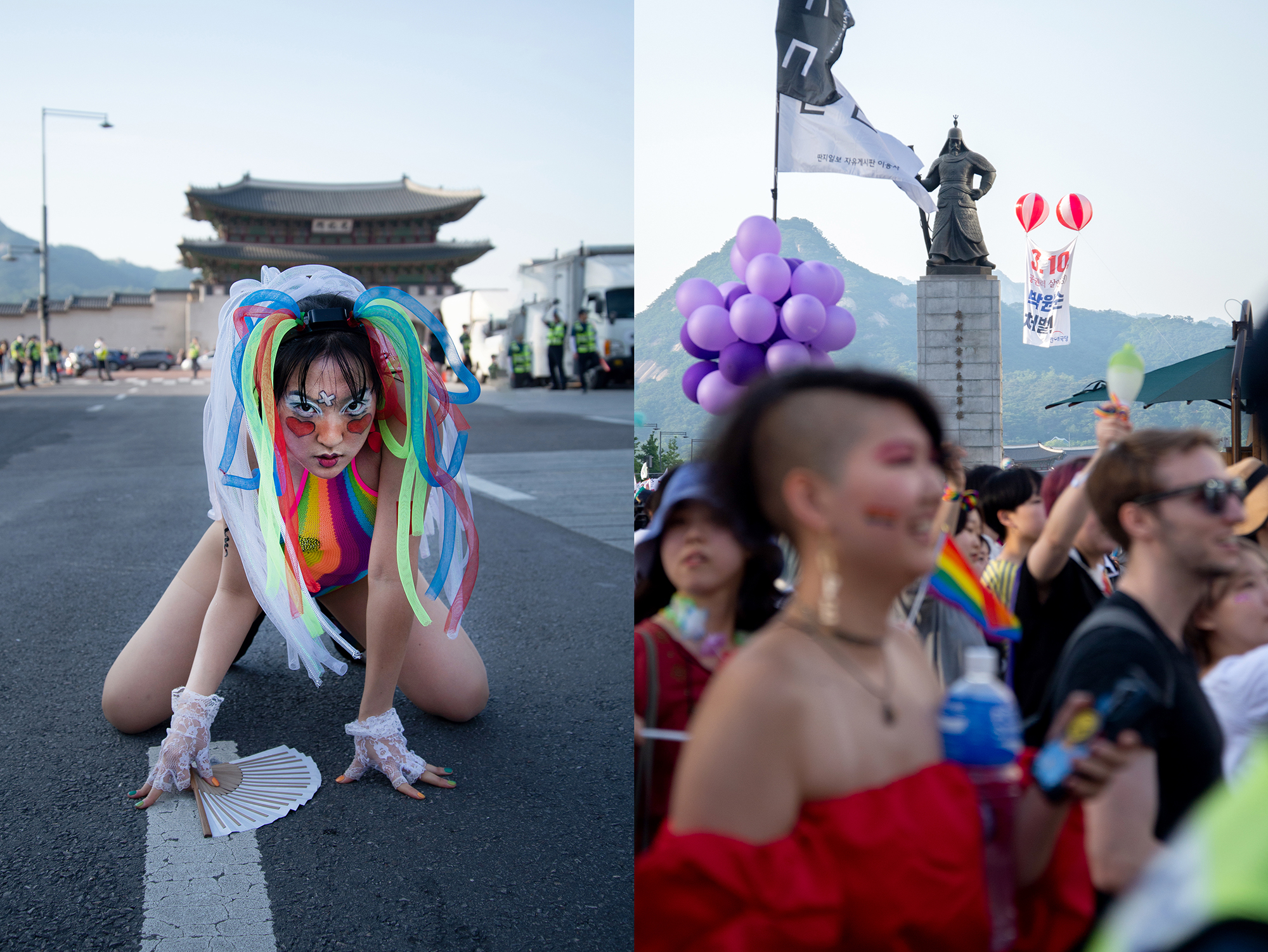
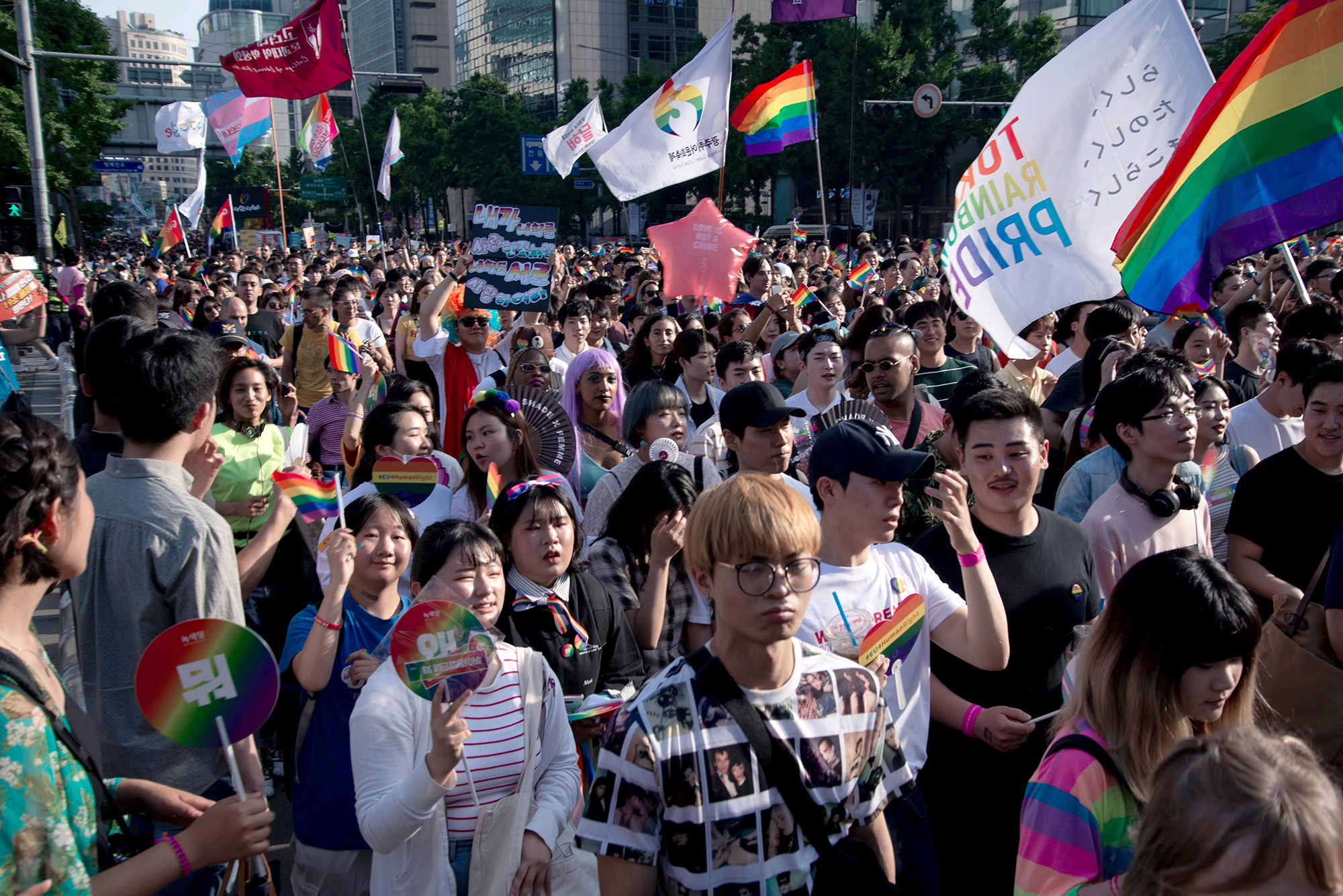
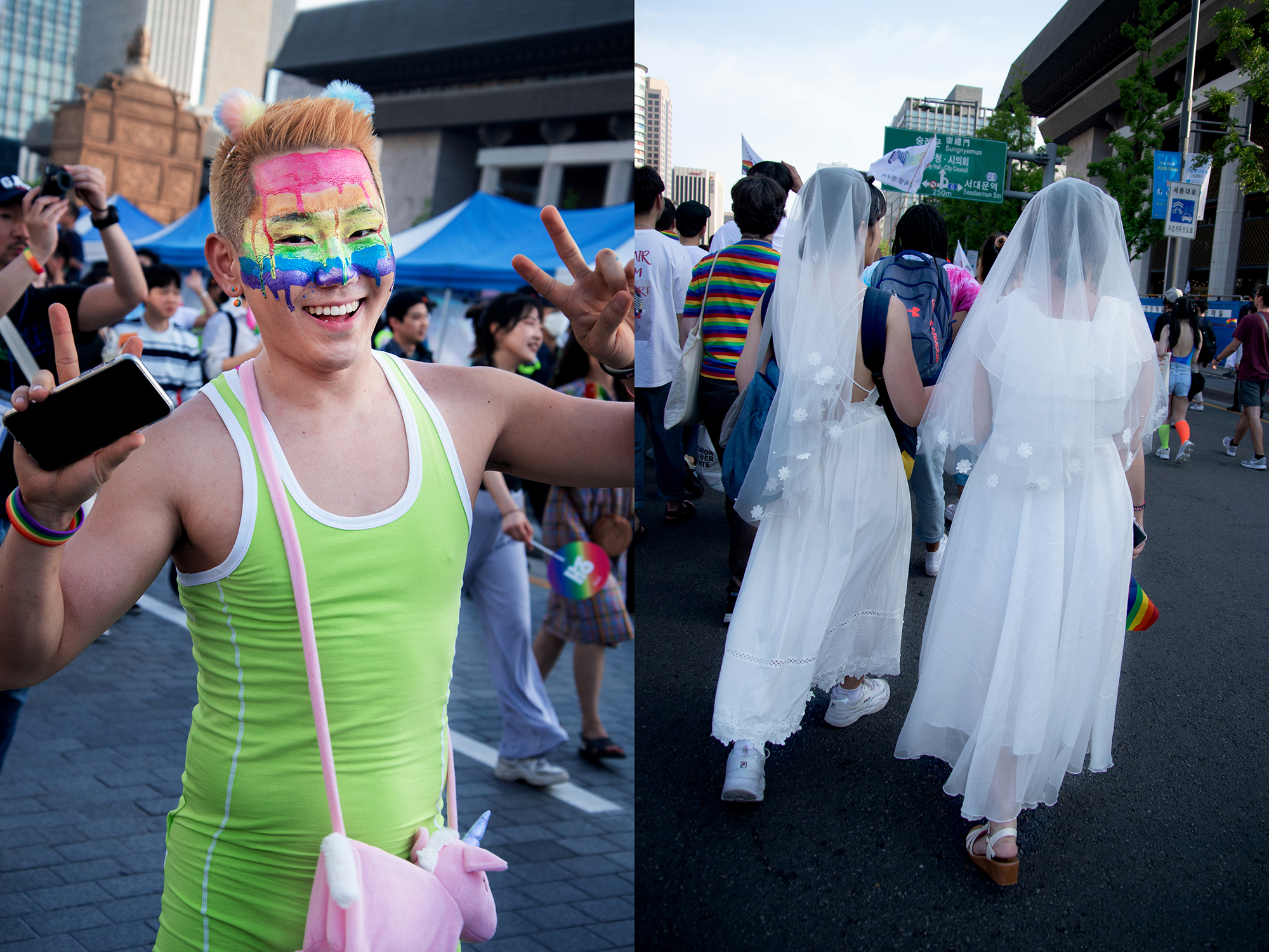
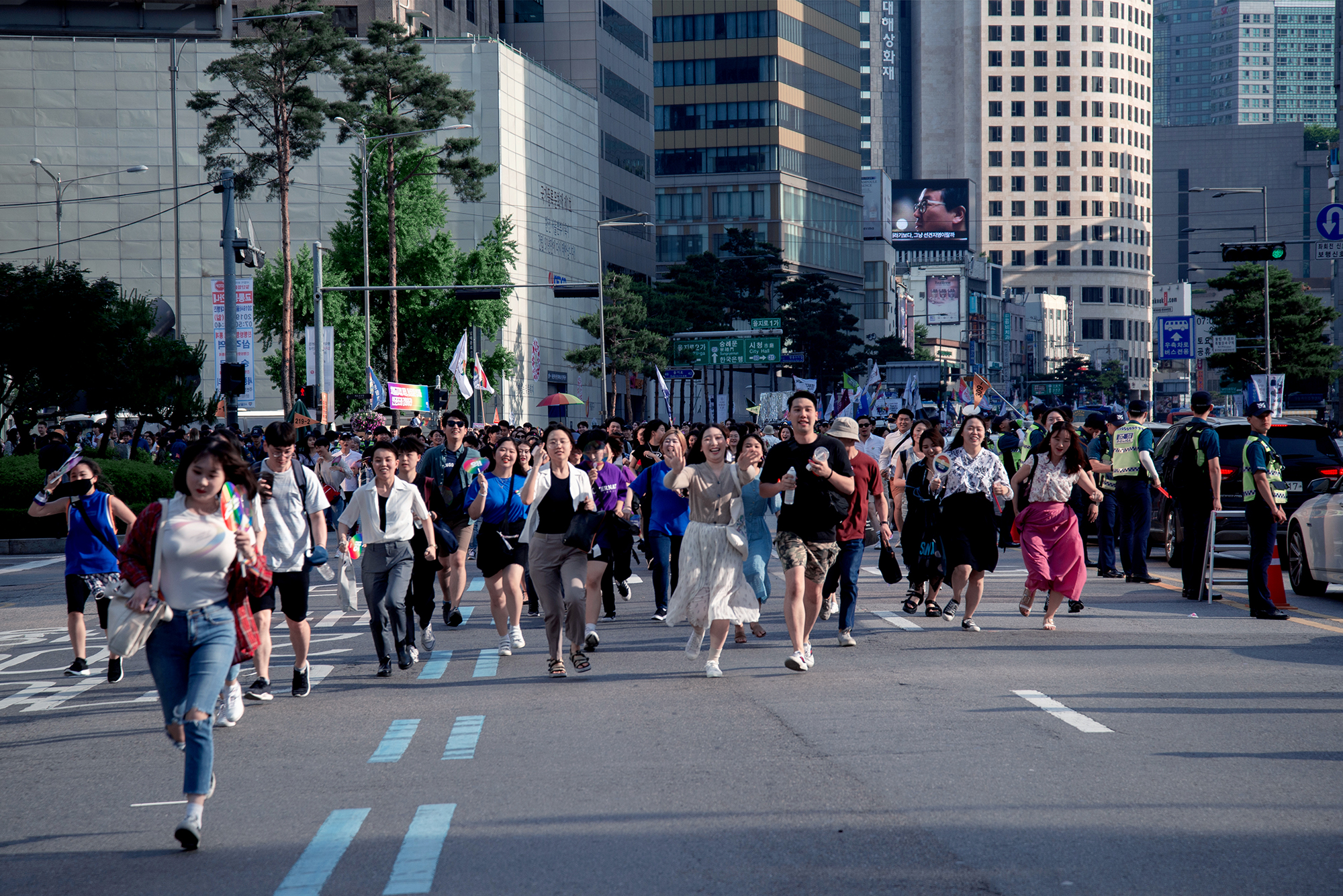
Credits
Photography Kanghyuk Lee
Text Cheryl Santos
Translation Joan Oh
